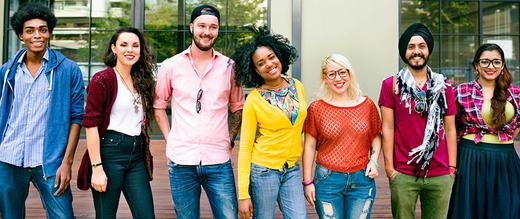The pursuit of fostering a good, diverse society is a paramount objective within the Bahá’í framework. Central to the Bahá’í teachings is the notion that unity in diversity serves not merely as an ideal but as a critical necessity for achieving global harmony and progress. This treatise elucidates fundamental principles derived from these teachings, illuminating how they can foster a more inclusive society that celebrates plurality while achieving collective advancement.
At the heart of Bahá’í philosophy lies the belief that humanity is one family, transcending artificial boundaries such as race, nationality, and religion. This foundational tenet implores individuals to recognize their intrinsic connections, engendering a paradigm shift from exclusivity towards inclusivity. Such a philosophical foundation cultivates an environment conducive to understanding and embracing diversity, thereby laying the cornerstone for a robust society.
One of the foremost lessons encapsulated in Bahá’í teachings is the principle of oneness of humanity. This profound precept asserts that the diversity of the human family ought to be regarded as a source of strength rather than division. By promoting the idea that individuals from various backgrounds—irrespective of ethnicity, culture, or creed—contribute uniquely to the tapestry of society, one can cultivate a synergistic environment ripe for collaboration and innovation. In practice, this perspective invites society to glean from various cultural insights, fostering a rich fusion of ideas that enhances community development.
The Bahá’í teachings further elucidate the indispensable role of justice in achieving a good society. Justice is not merely a legalistic concept but a moral compass that informs interpersonal relationships, governance, and societal norms. The implication here is that justice must be upheld for all members of society to feel valued and empowered. When individuals perceive themselves as equal participants within a just framework, they manifest higher levels of engagement and commitment to communal welfare. Therefore, the establishment of equitable systems that ensure fair representation and opportunities for all is critical for nurturing a diverse society that thrives on collective contributions.
Education emerges as another pillar in the Bahá’í discourse on societal development. The emphasis on universal and free access to education is paramount in empowering individuals to transcend their circumstances. An educated populace is better equipped to appreciate the nuances of diversity and is more likely to engage constructively in dialogue about societal issues. Thus, the Bahá’í approach advocates for an educational paradigm that imparts not only knowledge but also the values of empathy, respect, and cooperation. By fostering intellectual and moral growth, education becomes a transformative vehicle for societal progress.
Moreover, Bahá’í teachings stress the importance of consultation as a means of decision-making. Consultation encourages collective discourse and harmonizes diverse viewpoints, facilitating a deeper understanding of community needs. This democratic process cultivates a culture of inclusivity, ensuring that all voices are heard and acknowledged. In turn, this nurtures a sense of belonging and ownership among community members. As diversity is celebrated during consultation, the outcomes tend to be more reflective of the collective aspirations, thereby solidifying the strengths of a pluralistic society.
Additionally, Bahá’í principles advocate for the elimination of prejudices. Biases based on race, gender, or belief perpetuate division and hinder progress. By actively confronting and dismantling such prejudices, individuals can create a more harmonious environment where all members share equal opportunities and recognition. This requires a committed effort to cultivate awareness about systemic inequalities and to advocate for transformative practices that elevate marginalized voices. Recognizing and appreciating the myriad experiences of others is essential for nurturing genuine respect and understanding.
Furthermore, the teachings underscore the significance of service as a vehicle for societal improvement. Service to humanity is not only an ethical imperative but also a source of personal fulfillment and collective upliftment. Engaging in acts of service paves the way for authentic connections and interpersonal relationships across diverse populations. In a broader context, when community service initiatives are inclusive and representative, they bolster social cohesion and enhance community resilience by addressing the needs of diverse groups.
Lastly, there exists a recurring theme of the interdependence of material and spiritual development within Bahá’í philosophy. The material advancement of society should not eclipse spiritual growth. A balanced approach reconciles economic initiatives with ethical considerations, allowing for a holistic vision of societal progress. By underlining the synergy between material benefits and spiritual enrichment, individuals are encouraged to foster environments that promote both prosperity and moral integrity.
In conclusion, the Bahá’í teachings provide an insightful framework for constructing a good, diverse society. By embracing the principles of oneness, justice, education, consultation, the elimination of prejudice, service, and the interdependence of material and spiritual growth, communities can catalyze significant positive change. Notably, the promise of a harmonious society is anchored in a shift in perspective that invites curiosity, encourages dialogue, and fosters unity in diversity, ultimately paving the way for a future where mutual respect and collaboration prevail. As individuals reflect on these teachings, they are invited to participate actively in the creation of a world that echoes the highest ideals of humanity.
